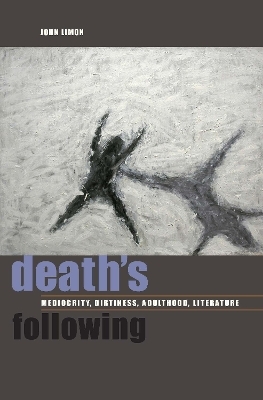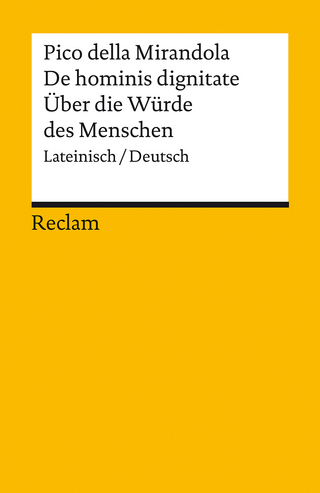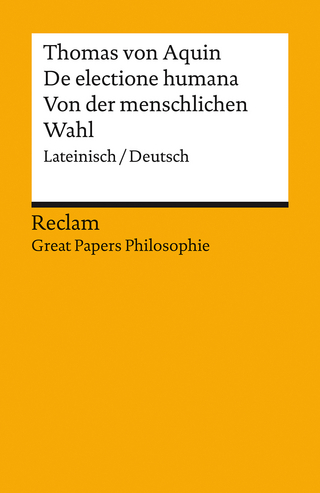
Death's Following
Mediocrity, Dirtiness, Adulthood, Literature
Seiten
2012
Fordham University Press (Verlag)
978-0-8232-4279-5 (ISBN)
Fordham University Press (Verlag)
978-0-8232-4279-5 (ISBN)
- Lieferbar (Termin unbekannt)
- Versandkostenfrei innerhalb Deutschlands
- Auch auf Rechnung
- Verfügbarkeit in der Filiale vor Ort prüfen
- Artikel merken
Death’s Following refuses the call of twentieth-century philosophy to face death heroically, advocating instead the mediocrity of Heidegger’s “they-self” and its inauthentic, distanced relation to death. Through literary criticism and autobiography, the book considers mediocrity the privileged site for imagining eternal absence: mediocrity as practice for being forgotten.
Almost all twentieth-century philosophy stresses the immanence of death in human life—as drive (Freud), as the context of Being (Heidegger), as the essence of our defining ethics (Levinas), or as language (de Man, Blanchot). In Death’s Following, John Limon makes use of literary analysis (of Sebald, Bernhard, and Stoppard), cultural analysis, and autobiography to argue that death is best conceived as always transcendentally beyond ourselves, neither immanent nor imminent.
Adapting Kierkegaard’s variations on the theme of Abraham’s near-sacrifice of Isaac while refocusing the emphasis onto Isaac, Limon argues that death should be imagined as if hiding at the end of an inexplicable journey to Moriah. The point is not to evade or ignore death but to conceive it more truly, repulsively, and pervasively in its camouflage: for example, in jokes, in logical puzzles, in bowdlerized folk songs.
The first of Limon’s two key concepts is adulthood: the prolonged anti-ritual for experiencing the full distance on the look of death. His second is dirtiness, as theorized in a Jewish joke, a logical exemplum, and T. S. Eliot’s “Ash Wednesday”: In each case, unseen dirt on foreheads suggests the invisibility of inferred death. Not recognizing death immediately or admitting its immanence and imminence is for Heidegger the defining characteristic of the “they,” humanity in its inauthentic social escapism. But Limon vouches throughout for the mediocrity of the “they” in its dirty and ludicrous adulthood. Mediocrity is the privileged position for previewing death, in Limon’s opinion: practice for being forgotten. In refusing the call of twentieth-century philosophy to face death courageously, Limon urges the ethical and aesthetic value of mediocre anti-heroism.
Almost all twentieth-century philosophy stresses the immanence of death in human life—as drive (Freud), as the context of Being (Heidegger), as the essence of our defining ethics (Levinas), or as language (de Man, Blanchot). In Death’s Following, John Limon makes use of literary analysis (of Sebald, Bernhard, and Stoppard), cultural analysis, and autobiography to argue that death is best conceived as always transcendentally beyond ourselves, neither immanent nor imminent.
Adapting Kierkegaard’s variations on the theme of Abraham’s near-sacrifice of Isaac while refocusing the emphasis onto Isaac, Limon argues that death should be imagined as if hiding at the end of an inexplicable journey to Moriah. The point is not to evade or ignore death but to conceive it more truly, repulsively, and pervasively in its camouflage: for example, in jokes, in logical puzzles, in bowdlerized folk songs.
The first of Limon’s two key concepts is adulthood: the prolonged anti-ritual for experiencing the full distance on the look of death. His second is dirtiness, as theorized in a Jewish joke, a logical exemplum, and T. S. Eliot’s “Ash Wednesday”: In each case, unseen dirt on foreheads suggests the invisibility of inferred death. Not recognizing death immediately or admitting its immanence and imminence is for Heidegger the defining characteristic of the “they,” humanity in its inauthentic social escapism. But Limon vouches throughout for the mediocrity of the “they” in its dirty and ludicrous adulthood. Mediocrity is the privileged position for previewing death, in Limon’s opinion: practice for being forgotten. In refusing the call of twentieth-century philosophy to face death courageously, Limon urges the ethical and aesthetic value of mediocre anti-heroism.
John Limon is John J. Gibson Professor of English and chair of the English Department at Williams College. His previous books are The Place of Fiction in the Time of Science, Writing After War, and Stand-Up Comedy in Theory.
| Verlagsort | New York |
|---|---|
| Sprache | englisch |
| Maße | 152 x 229 mm |
| Themenwelt | Geisteswissenschaften ► Philosophie ► Philosophie des Mittelalters |
| Geisteswissenschaften ► Sprach- / Literaturwissenschaft ► Anglistik / Amerikanistik | |
| Geisteswissenschaften ► Sprach- / Literaturwissenschaft ► Literaturwissenschaft | |
| ISBN-10 | 0-8232-4279-X / 082324279X |
| ISBN-13 | 978-0-8232-4279-5 / 9780823242795 |
| Zustand | Neuware |
| Haben Sie eine Frage zum Produkt? |
Mehr entdecken
aus dem Bereich
aus dem Bereich
Redewendungen aus der Natur
Buch | Hardcover (2024)
Regionalia Verlag
7,95 €
von der menschlichen Wahl
Buch | Softcover (2024)
Phillip Reclam (Verlag)
7,40 €


